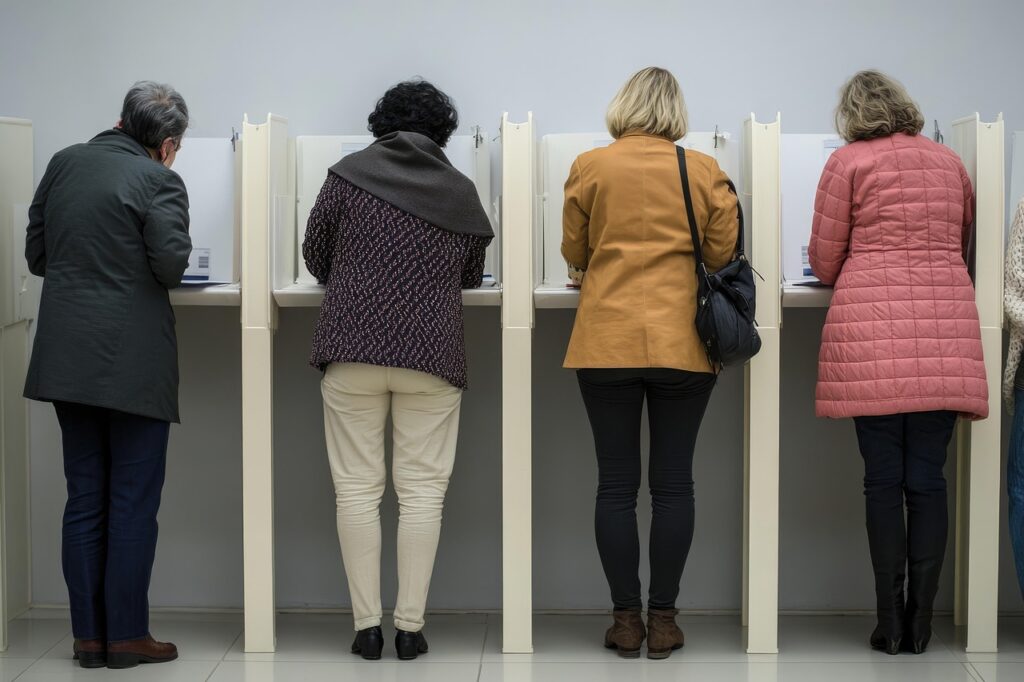STEVEN KLEIN
This post was originally published on August 13, 2025 by the Blog of APA and has been republished with the permission of the APA Blog and the author.
The association of democracy with elections is relatively recent. In ancient Athens, three things distinguished democracy from other regimes: all citizens having a right to vote directly on laws in the Assembly, the selection of political officials using lottery, and large, popular juries to enforce the laws. The use of election was reserved for positions—such as generals and accountants—that required specialized expertise, and even then, they were accompanied by strict accountability mechanisms at the end of their terms.
The animating normative ideal was robust equality between all citizens. Athenian democracy was organized so that no individual or group would exercise power over the people. Elections were seen as a deviation from this ideal, justified by other needs, such as national self-defense. Recently, scholars have echoed the Athenian vision by arguing that part of the distinctive value of democracy is the way it enables citizens to relate as equals. Yet this recent debate has lost hold of a significant Athenian insight: that to realize equality, democracies need a robust mix of institutions that will all together check the ability of economic and political elites to assert their will against the people.
Equality and Collective Power
There are many good things about living in a democratic society. Democracies typically have robust freedom of speech, the rule of law, mechanisms to contest and appeal government decisions, and relatively low levels of corruption. Thus, democracies will often realize a variety of values, including negative freedom and the protection of basic rights. Philosophers like to talk as though they are finding the value of democracy, but we should rather think of democratic theory as identifying a variety of values that democratic institutions will realize and then thinking about the trade-offs between those different values when it comes to institutional design.
One such value is equality. A core value of democracy is that everyone’s voice should count equally. In a democratic society, there are no permanent castes, no aristocracy that has a claim to monopolize political office.
But what, concretely, does this equality require? One tempting answer is something like procedural fairness. We want our democratic procedures to give everyone the same chance of influencing an outcome. But this can lead to some odd conclusions. For example, procedural fairness is compatible with supermajority as well as majority rules. It is also compatible with even stranger rules, such as randomly selecting one individual to be the decisive voter.
The problem with this argument is that it starts from us as individuals rather than treating us as we really are—members of different social groups and economic classes. The Athenian idea of equality, for example, was closely tied to the idea that the people, understood as the poorer majority of society, needed to rule together. Their power was a collective power that was realized through a variety of institutions, including some, like the Assembly, that operated according to one-person, one-vote, but even then, in a context that ensured no one institution would be captured by the powerful.
What we really want to equalize is the collective power of citizens to act together. This means that we want to ensure that different relevant social groups have the ability to equally shape public life. And it means we want to ensure, over the long run, that the majority has the power to steer decision-making. We know this equality has been violated when small, powerful groups—corporations, entrenched lobbies, the wealthy—reliably have their policy preferences met even if they differ from the public’s.
Evaluating the existence of this sort of equality is more demanding than looking for procedural fairness. It requires analyzing both the structure of democratic procedures and their results over time. What we will look for are what I have called egalitarian feedback loops between procedures and results that sustain, over time, the equal ability of groups to influence political choices.
What Elections Can and Cannot Do
As Bernard Manin argues in his history of representative democracy, elections originate in an idea of consent to be ruled rather than equal power to rule together. For early liberal advocates of election, such as Benjamin Constant, the freedom of the moderns was private liberty, which contrasted to the participatory freedom of the ancients. Suffrage for property owners would ensure that the government respected private property rights. Of course, the great nineteenth century struggles for democracy were focused on expanding who could participate in elections. But those movements also envisioned democracy as more than just election, including demands for things like recall and referendums to ensure that elected politicians did not become a new elite. Only after World War II did democracy become firmly associated with elections between competing political parties.
Yet there is a reason the great struggles for democracy focused on elections. It’s not just that in large-scale states, some political division of labor—and so the need for professional politicians and parties—is necessary. The dynamics of electoral politics itself creates mechanisms and incentives for mobilizing the public and enabling the sort of collective power on which democracy rests.
Political parties, as democratic institutions, are the connective tissue between individual and collective power. In competing for votes, they have powerful incentives to mobilize different groups, to cooperate with independent sources of collective power like labor unions, and to try to assemble these disparate individuals and groups into a larger political movement that can sustain, over multiple elections, a project of democratic self-determination.
But to the extent that elections achieve this sort of equalization of collective power, it is because they are one part of a larger ecosystem of political mobilization, with robust additional institutions such as labor unions. In their absence, they can become what they were originally: a way to consent to be ruled. And that, to a large extent, is what they risk becoming today.
What Should We Add to the Mix
This dissatisfaction with election has led democratic theorists to propose new institutions that would correct for the limits of elections or replace them altogether. Some of these, like minipublics or citizens’ assemblies, are meant to create a more knowledgeable, informed electorate. Some, such as Hélène Landemore and Alex Guerro, have gone as far as to propose replacing elections altogether with randomly selected legislative bodies. Others, such as John McCormick, have called for the revival of class-specific, plebian institutions akin to the Roman tribunate.
The crucial point in evaluating these proposals is to not fall back into naivety about collective power and procedural fairness. Democracy is a system of dynamic political contestation between different organized forms of political power. The introduction of a new institution will alter those dynamics and often not align with what an ideal theory tells us. The fate of electoral competition—that it can at times support broad-based, egalitarian mobilization and sometimes empower political elites and entrenched interests—applies to these institutions reforms as well.
The most promising reforms are those that will enable the sustained mobilization of social organizations and groups. A simple reform that would likely have a large impact on these mobilization incentives would be mandatory voting. A shift to pure lottocracy would most likely undermine collective power, as it would cut off the mobilization-friendly incentives of political leaders. But the introduction of some lottery-based institutions, such as second bodies that would interact with elected bodies, could force political parties to be more responsive to a broad range of views and so more mobilization friendly.
Democracy is no doubt in trouble. In the face of authoritarian nationalist movements, there is a temptation to double down on elections. But defenders of democracy need to see that viability of elections rests on a much broader process of egalitarian political organization and mobilization, and our best hope today is to figure out ways to enhance the power of the people, together, to act.
Steven Klein is a Senior Lecturer in Political Theory in the Department of Political Economy, King’s College London. His research focuses on democratic theory, theories of political economy and the welfare state, and the history of European social and political thought (especially of 19th- and 20th-century Germany). He is currently writing a book on the global history and philosophy of trade unions for Allen Lane.


